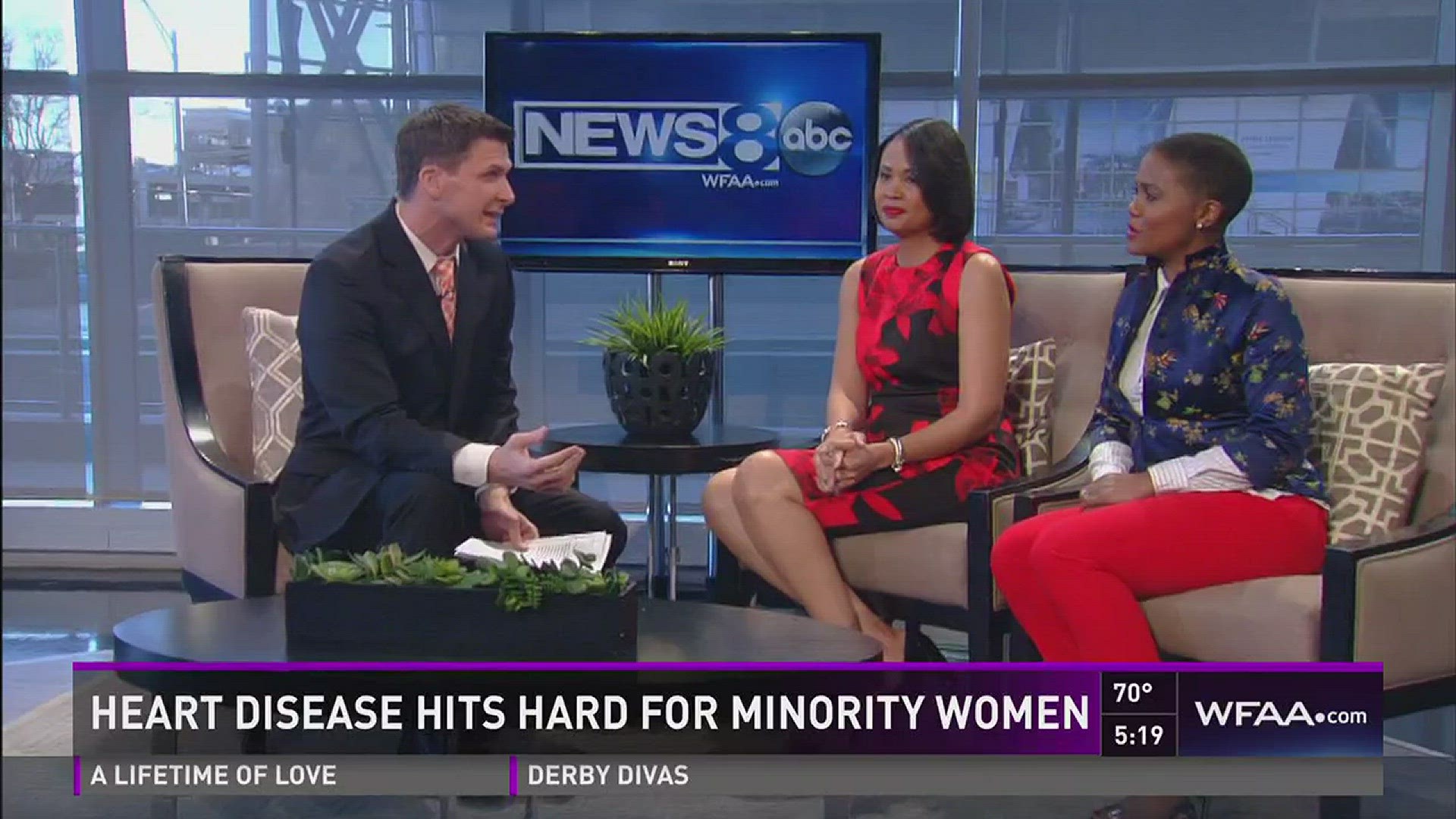FORT WORTH — Tara Robinson, of Fort Worth, has made it her purpose to increase the awareness of heart disease after surviving not one but three heart attacks in one week.
At 40 years old and in what appeared to be good physical shape, Tara found herself in the hospital fighting for her life. Doctors informed her that she had complete blockage that led to three heart attacks in April, 2014.
The survivor, who has multiple passions, says raising awareness about heart disease is her purpose. She says she had all of the symptoms that the American Heart Association warns of: left arm pain, shortness of breath and chest pain.
Despite that, she attributed those signs to other possible issues and never thought of a heart attack. The fact that other women may be ignoring the symptoms is what motivates Tara to speak whenever and wherever she can.
“We must raise the awareness of this disease and now. This is my purpose. I survived to spread the urgency of this issue,” Tara adds.
Brian Brooks, Director of Communication for the American Heart Association, informs us, “Heart disease is the number one cause of death for all Americans, killing more people each year than all forms of cancer combined.”
Mrs. Robinson credits her recovery and positive outlook to her faith and support system.
“If it were not for my husband, children, the strength of my two sisters, the example in my Mother and the prayers of them all, including the American Heart Association team, I may not be as empowered or living with such an invaluable purpose as I do today," she said. "Family is everything to me. I have a big one. We are blessed.”
Cardiovascular diseases and stroke cause 1-in-3 women’s deaths each year, killing approximately one woman every 80 seconds, per the American Heart Association.
The American Heart Association (AHA) is headquartered in Dallas with offices in Fort Worth. If you or someone you know needs assistance or information on heart disease or stroke contact the AHA. Click here.
For more information on the Go Red For Women Campaign, click here.
Hispanic women
- Hispanic women are likely to develop heart disease 10 years earlier than Caucasian women.
- Cardiovascular diseases are the leading cause of death for Hispanic women, killing nearly 21,000 annually.
- Only 34% of Hispanic women know that heart disease is their greatest health risk.
- Hispanic women are least likely to have a usual source of health medical care and only 1 in 8 say that their doctor has ever discussed their risk for heart disease.
African American women
- Cardiovascular diseases are the leading cause of death for African-American women, killing over 48,000 annually.
- Only 36% of African American women know that heart disease is their greatest health risk.
- Of African-American women ages 20 and older, 48.3% have cardiovascular disease. Yet, only 14% believe that cardiovascular disease is their greatest health problem.
- Only about 50% of African-American women are aware of the signs and symptoms of a heart attack.
- Heart disease is the No. 1 killer of women, which is why it is imperative that women learn the warning signs and symptoms, see a doctor regularly, and learn their family history.
Symptoms of a heart attack
- Uncomfortable pressure, squeezing, fullness or pain in the center of your chest that lasts more than a few minutes, or goes away and comes back.
- Pain or discomfort in one or both arms, the back, neck, jaw or stomach.
- Shortness of breath, with or without chest discomfort.
- Other signs such as breaking out in a cold sweat, nausea or lightheadedness.
As with men, the most common heart attack symptom in women is chest pain or discomfort. But it’s important to note that women are more likely to experience the other common symptoms, particularly shortness of breath, nausea/vomiting and back or jaw pain.

